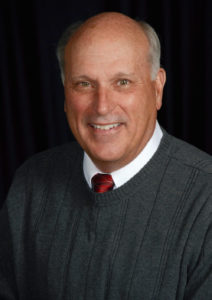Leadership – The First Installment
There are lots of leaders. There are lots of leadership experts. There are lots of leadership books. I googled “leadership books” and got 475 million hits. (seriously) Then to narrow down the universe of leadership books, I went to Amazon and still got “102,879 results”. That’s a lot of books. The point is, there are a lot of books and resources available, but often they conflict and disagree, and at the end of the day the lessons taught are really just one author’s opinion.
Clearly the subject can be quite confusing. I am especially amused when a book author has a very specific detailed formula. Example: Stephen R. Covey’s book, The 7 Habits of Highly Effective People. (Great book by the way!) But even Mr. Covey eventually added an “8th Habit”. So is understanding and learning leadership easy or hard?
My personal opinion is that it is both. Leadership comes easy to some, and some people really don’t have an aptitude for it. And even for those who are natural leaders, there is always more to learn, and if they are paying attention, they will experience a new leadership challenge every day. I also believe that people who may not be particularly good at leadership can become better leaders. All leaders can become better if they are given the right leadership and learning opportunities.
The subject is long and complicated. But I would like to simplify it and make it as useful as possible to new and experienced leaders alike. Since the subject is so broad, I will also just tackle one aspect of leadership in this particular blog. A first step is to describe several types of leaders we all see every day. “Leadership” is not a one-size-fits-all description.
The Position Leader
This is the person we understand the most. The President of the United States, a teacher, your priest, minister or rabbi. Your Boy Scout Scoutmaster and the head of the PTA. All of these are leaders – by definition of their position. We assume all of these people are qualified, but I submit you don’t have to be a good leader to be in a position of leadership. However we generally show respect for the position, and then let the leader in the position earn our personal respect as they demonstrate leadership.
The Subject Matter Expert
Subject Matter Experts are the “go to” people on a subject. We all know them. We appreciate them when they have particular skills. I appreciate my mechanic. I love my physician. I even like my dentist. I imagine the list of trusted experts in your lives is long. However these experts do not necessarily have to be good leaders. They may have weird personalities or have difficulty carrying on a conversation, but we have a high degree of trust in their knowledge and ability.
The Charismatic Leader
In “The Music Man” Professor Harold Hill convinced the people of River City, Iowa that the young men in the town could all become musicians. He had that uncanny ability to make people want to follow him. We all know these people. I have had several bosses who I trusted completely, and if they asked or told me to do something, I just did it to the best of my ability. We want to follow these leaders. Most of us never actually met John F. Kennedy – but he was a charismatic leader, and we wanted to follow him
The Effective Leader
This is simply the one who “gets things done”. Sometimes he or she is hard to like or hard to work with. Sometimes they can be very charismatic. Sometimes that can’t even spell charisma, but they are known for getting the job done. And we trust them to be successful.
If we are lucky, our leaders in positions of authority would be subject matter experts and be charismatic and effective. But for all these types of leaders, there are many variations. This is part of the complexity of leadership. More on Leadership to follow in future blogs.





